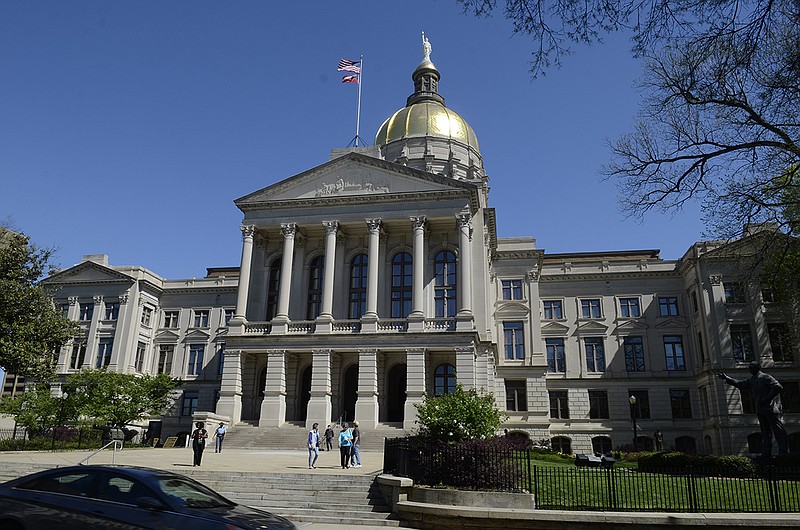ATLANTA - Struggling schools, opioid addiction and the state's medical marijuana program appear likely to dominate the rest of Georgia's legislative session.
Lawmakers spent January and February consider bills introduced in their own chamber. On Monday, they begin focusing on the opposing chamber's legislation.
Here are some things to know about the rest of this year's session:
TOP ISSUES
As expected, education dominated the first portion of the session. The House approved legislation to give the state broad authority to intervene at struggling local schools, with support from Democrats, after several revisions.

The Senate now takes over that issue, considered an alternative to the constitutional amendment proposed by Gov. Nathan Deal and rejected by voters in November that would have enabled state takeovers of some schools.
Influential teacher organizations are neutral for now. They'd like to see the elected state superintendent play a larger role in the "turnaround" process overseen by a proposed official selected by the appointed State Board of Education.
Both the House and Senate have approved bills inspired by opioid addiction rates in the state. There's little disagreement on some points, such as making the overdose-reversing drug naloxone available over the counter.
Senators and House members may try to combine other proposals focused on preventing doctor-hopping and weeding out physicians who are over-prescribing opioids.
Lawmakers are likely to clash over proposed changes to a relatively new program allowing possession of cannabis oil for some medical treatments. The House approved expanding the eligible medical conditions, while Senators approved cutting the level of tetrahydrocannabinol, or THC, allowed in the oil from 5 percent to 3 percent.
Tax changes could become a bargaining chip for lawmakers, as they consider various exemptions and a House proposal to turn the state's multiple tax rates into a flat tax.
The state budget is the only bill the legislature must approve each year. The House passed its version with little conflict, and the Senate began holding some hearings last month to develop its version.
Leaders from both chambers will then resolve differences and present a final version for a vote.
DEADLINE PUSH
Both chambers approved dozens of bills on Friday, the so-called "crossover" day when bills must have passed at least one chamber to be considered by the other.
This year, lawmakers moved that deadline up to the 28th day of the 40-day session. They have set the deadline at the 30th day in recent years.
"That'll give us additional time to get through all the bills coming over from the House," said Senate President Pro Tempore David Shafer, R-Duluth.
Among the bills approved Friday and headed across the Capitol for review:
-Allowing licensed gun owners to carry concealed handguns on public college campuses
-Allowing people who have been involuntarily committed to a mental hospital to request the right to purchase a gun before the end of the standard five-year ban
-Requiring schools to test their water for lead by the middle of 2019
-Collecting sales taxes on trips through ride-hailing services including Uber and Lyft
-Lifting a yearlong moratorium on new construction of oil pipelines
LEFT BEHIND
No bill is truly dead for the year until lawmakers adjourn at the end of March, but passage before the "crossover day" deadline makes the path much smoother.
Some high-profile measures wound up on the wrong side of that deadline this year, including bills in both the House and Senate seeking to legalize casino gambling. Supporters said they plan to try again next year after traveling around the state to discuss it.
Late last month, Senate Republicans introduced a bill they argue will protect people acting on religious belief, undaunted by the governor's veto of a similar bill last year. This year's bill, mirroring a federal law, never received a committee or floor vote. Supporters tried unsuccessfully Friday to attach it to other legislation.
A bill seeking to label driver's licenses issued to immigrants with permission to be in the U.S. to be labeled "ineligible voter" didn't get a House vote. A similar bill in the Senate requiring those licenses to be printed vertically, rather than horizontally, also stalled.
